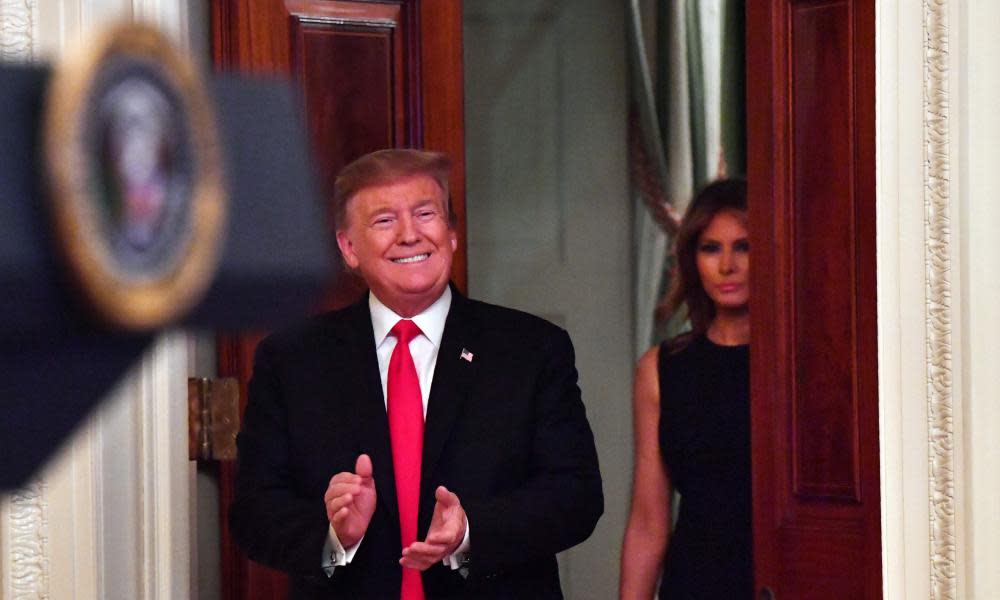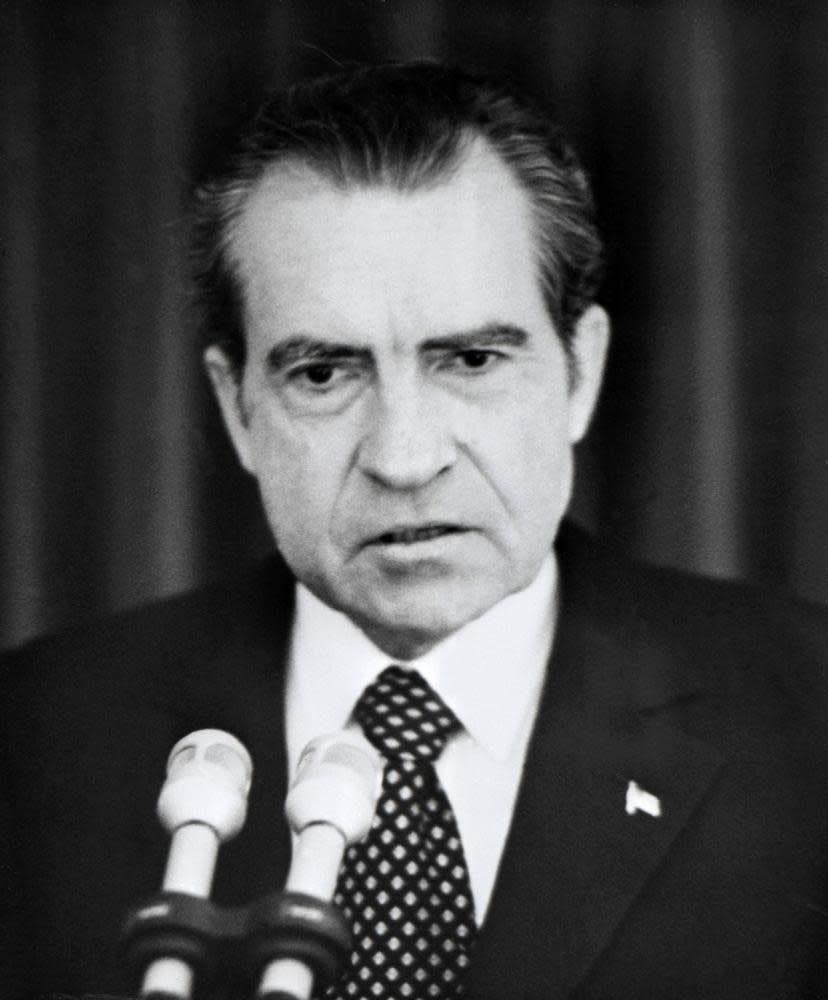'Even Nixon wasn’t like him': Trump's bid to upend Russia inquiry unprecedented, experts say

It was yet another bombshell report for a president already ensnared in multiple investigations against his campaign, administration and family members.
This time it had to do with hush money paid to women to silence them from speaking about alleged affairs they had with Donald Trump. According to a New York Times report published this week, Trump asked Matthew Whitaker, his controversial acting attorney general, if he could install a loyalist at the helm of the investigation into the hush money.
Although Whitaker declined Trump’s request, the story has raised fresh questions over whether the president was seeking to obstruct justice and how the reported move fits into a broad pattern of Trump attempting to interfere with an investigation concerning himself.
Since taking office, Trump’s fixation on the federal inquiry into Russian interference in the 2016 election – and potential collusion between his campaign and Moscow – has spurred a series of actions that could now imperil his presidency and prospects of a second term.
From high-level firings to public misstatements, Trump’s repeated steps to undermine the investigations that have clouded his two years in office paint a picture of a president who is his own worst enemy, legal experts say.
“It is quite clear from all the evidence that the president has had the intent to obstruct this investigation,” said Andy Wright, a former associate counsel to Barack Obama and the founding editor of the legal blog Just Security. “It’s been in plain sight.”
“It’s a fundamental abuse of power for the president to be trying to shut down an investigation in which he has a personal stake – both as a potential target himself and his political allies and family members,” he added.
One of the very first deeds appeared to be the most alarming: in an abrupt move, Trump fired James Comey, the FBI director then at the helm of the Russia investigation.
The White House initially claimed Comey’s dismissal had to do with his own conduct during the 2016 election, but Trump publicly conceded “this Russia thing” had been part of the calculus.
Democrats swiftly decried the move as reminiscent of when Richard Nixon in 1973 ordered the firing of Archibald Cox, the special prosecutor investigating the Watergate scandal. Both Nixon’s attorney general and deputy attorney general resigned in protest in what was coined the “Saturday Night Massacre”.

Although Trump did not face any meaningful punitive action from a Republican-led Congress in the wake of Comey’s firing, the moment served as the impetus for appointing special counsel Robert Mueller to oversee the Russia investigation.
In the time since, the president’s frustration with the special counsel has routinely spilled into public view – be it through Trump’s Twitter tirades deriding the investigation as a “witch hunt” or attempts to frame the narrative as a “deep state” conspiracy intent on taking him down.
“He’s a subject of these investigations and he should just keep his hands off,” said Susan Bloch, a law professor at Georgetown University.
Trump has nonetheless proved incapable of allowing the multiple inquiries involving him and his inner circle to unfold in the background. He has instead chosen to meet the developments head on, dismissing unflattering revelations as “fake news” and on several occasions intervening directly.
When it was revealed that Donald Trump Jr accepted a meeting with a Russian lawyer during the presidential campaign, under the pretense of receiving damaging information about Hillary Clinton, Trump reportedly dictated a highly misleading White House statement characterizing the encounter as having to do with adoptions.
The president’s elder son was later forced to disclose the communications that precipitated the infamous June 2016 meeting at Trump Tower, in which he was explicitly informed of an effort by the Russian government to aid his father’s campaign. The meeting, and Trump’s role in crafting the false statement downplaying its nature, have been a key focus for investigations.
Other instances of alleged meddling on Trump’s part include threatening in private to fire Mueller and the president’s treatment of his former attorney general, Jeff Sessions.
Trump reportedly dispatched Don McGahn, then serving as his White House counsel, to persuade Sessions not to recuse himself from handling the Russia investigation after it was revealed that Sessions failed to disclose his own contacts with the Russian ambassador to the US.
“This president has a ‘you’re with or against me’ mindset,” Wright said.
Mueller is soon expected to conclude his investigation – perhaps as early as next week – and deliver a report on the special counsel’s findings. Although Mueller is expected to adhere to justice department precedent, under which a sitting president would not be indicted, he could recommend obstruction of justice charges against the president.
The matter would then be in the hands of a divided Congress, where the battle lines are already drawn.
Republicans have maintained a broadly sympathetic tone with respect to Trump, at times echoing his attacks on the justice department.
While a majority of the American public has expressed support for the special counsel, Trump’s campaign to delegitimize the investigation has paid dividends with Republican voters, who remain overwhelmingly in his favor.
Democrats are meanwhile using their newfound majority to pursue investigative avenues of their own, but have sought to temper expectations with respect to impeachment. House Democratic leaders have argued that efforts to impeach Trump would be purely symbolic, since there would not be sufficient votes in the Republican-led Senate to remove the president from office.
Regardless of the outcome, Bloch said Trump’s actions had already crossed the threshold of unprecedented.
“There’s just never been anyone quite like Trump,” she said, “in terms of the charges against him, and in terms of his flagrant efforts to malign the whole investigation and a substantial part of the justice department.”
“Even Nixon wasn’t like him. There’s nothing like him.”

 Yahoo News
Yahoo News 
